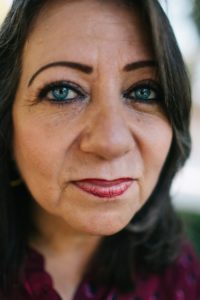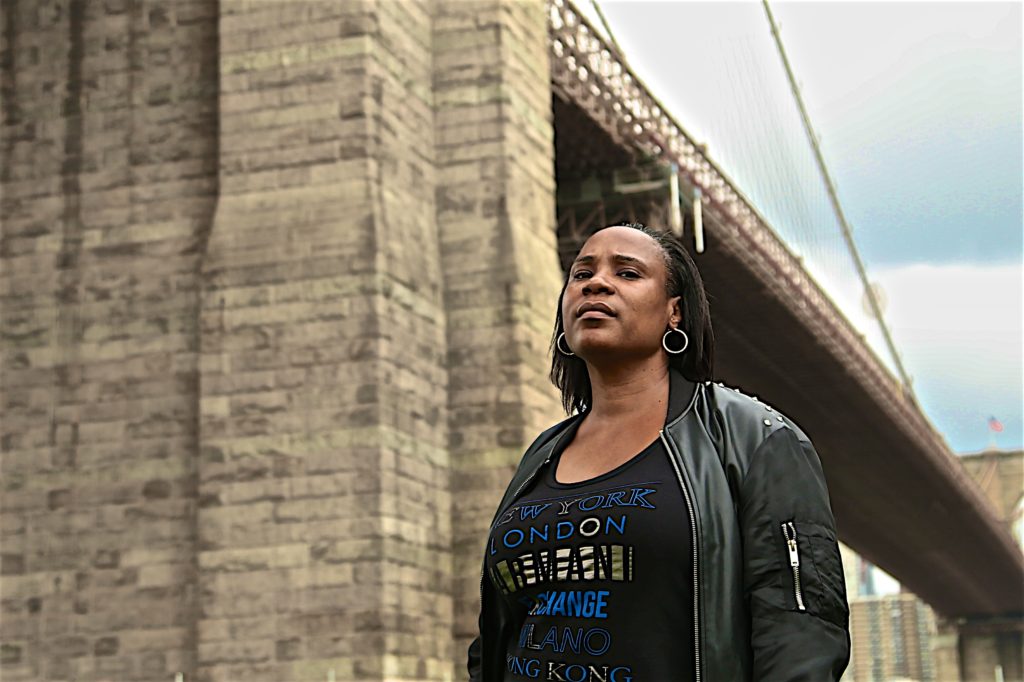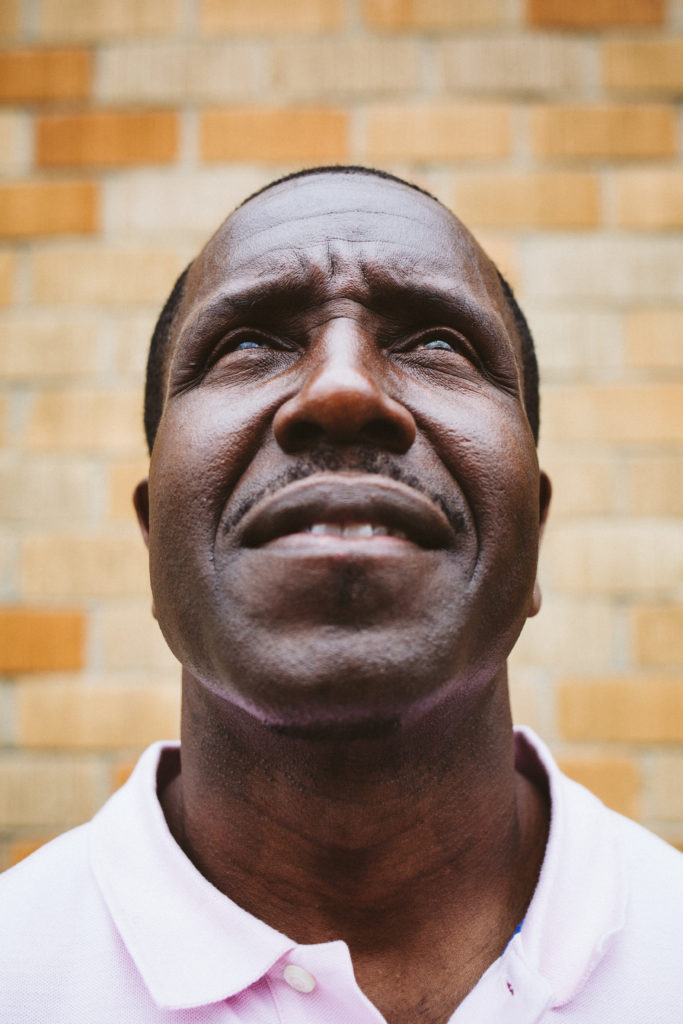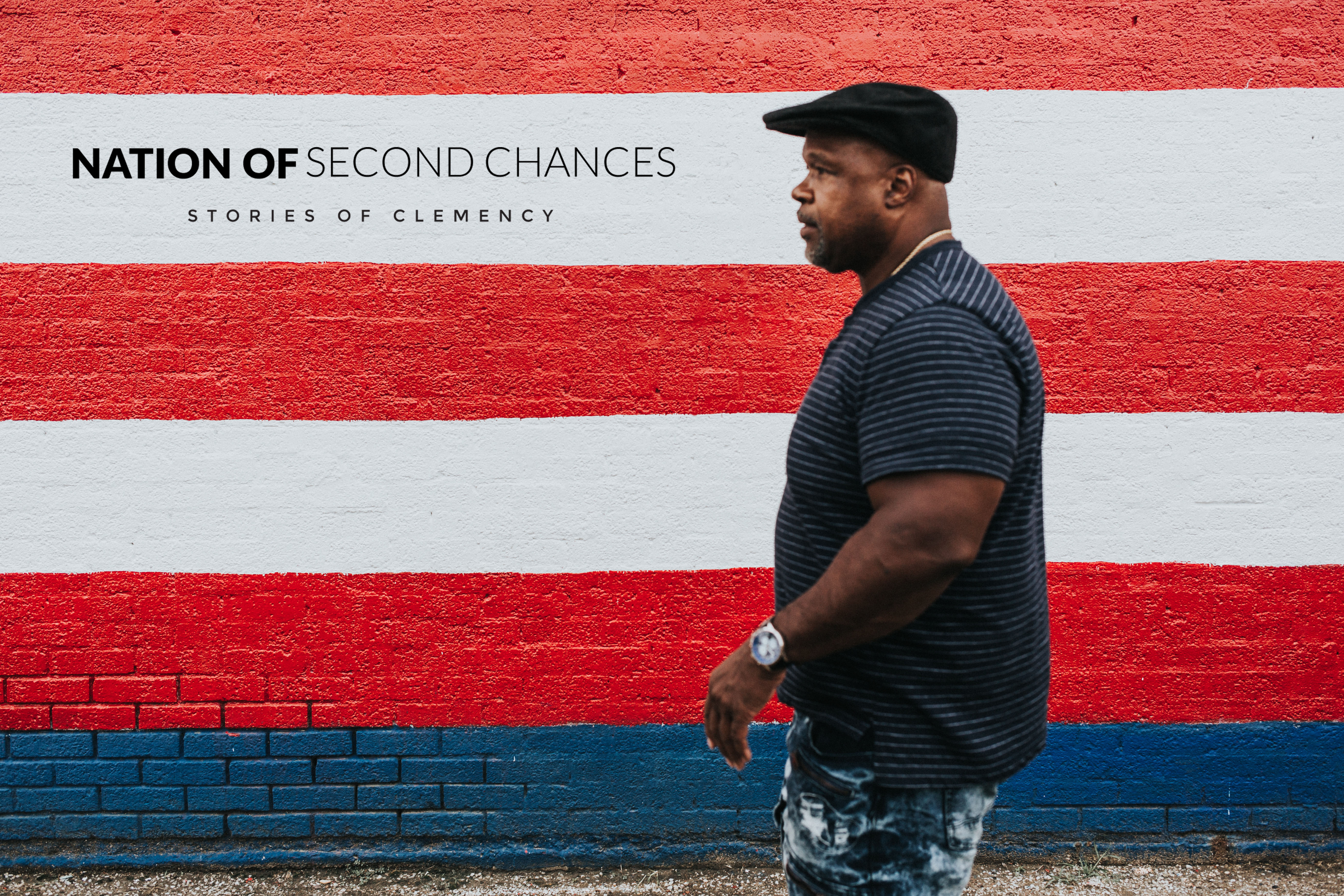Jon Perri is a Digital Organizer, storyteller and longtime HeadCount volunteer. By day he works as a Director of Campaigns & Partnerships at Change.org, and by night he serves as Creative Director at Nation Of Second Chances: Stories of Clemency. Recently he chatted with us about his work at Nation Of Second Chances, documenting the stories of nonviolent drug offenders released from prison through President Barack Obama's historic clemency initiative.
The HeadCount blog is a forum for our community where we welcome all opinions and perspectives. Anyone wishing to write for the HeadCount blog may do so by emailing [email protected]. This commentary reflects only the views of the interview subject and not of the HeadCount organization.
HeadCount: What is Nation of Second Chances? Was it connected to your work at Change.org?
Jon Perri: Nation of Second Chances is a photojournalism series that tells the stories of people granted clemency by President Obama. In total, 1,715 people had their prison sentences commuted. Almost all were nonviolent drug offenders given mandatory minimum sentences of decades or life in prison — even for first offenses.
My goal is to humanize these people through beautiful photos and hopefully change hearts and minds about who these people are. The people we’ve profiled so far are doing wonderful things with their freedom and simply don’t belong in prison. I want people to understand that it’s a good thing they are free and that there are many others who should have been released as well.
This is a project I've launched on my own, though it comes out of my work at Change.org where I'm the Director of Campaigns and Partnerships. During Obama’s second term I helped families of incarcerated people start online petitions about clemency, totaling over 2.2 million signatures, and developed friendships with both the families and the prisoners. At least 20 clemency recipients had a Change.org petition so it's been wonderful to finally meet many of them in person through Nation of Second Chances.
Which stories of folks you've profiled really stand out to you?
 They’re all incredible stories that touch on heartbreak, injustice, and redemption. If I had to draw attention to one, I’d say Josephine Ledesma. She served the longest of the people I’ve profiled so far, almost 25 years of a life sentence, and she’s one of the nicest women you’d ever meet. She’s a grandmother about to turn 60 years old and has never posed a threat to society.
They’re all incredible stories that touch on heartbreak, injustice, and redemption. If I had to draw attention to one, I’d say Josephine Ledesma. She served the longest of the people I’ve profiled so far, almost 25 years of a life sentence, and she’s one of the nicest women you’d ever meet. She’s a grandmother about to turn 60 years old and has never posed a threat to society.
Without clemency she would still be in prison and ultimately, she would die there. That’s really what I’m hoping this project helps people realize — there are many completely harmless people in prisons who should be released through clemency or sentencing reform.
What has surprised you the most as you hear these stories of second chances?
First time nonviolent drug offenders, people without so much as a speeding ticket, sentenced to life in prison without the possibility of parole, and how conspiracy laws pushed most of this. Everyone I’ve interviewed was convicted of conspiracy. These laws allow many people to be charged in a single case and all held accountable for the same thing. For example, all someone has to do is testify (in exchange for a plea deal) that you had knowledge of your boyfriend selling drugs and you could be charged with “conspiracy to distribute” and end up facing a life sentence. And based on testimony of others, law enforcement can just estimate the amount of drugs or money involved — in many cases there are no physical drugs even found.
A lot of the NOSC work is with folks granted clemency by former President Obama. Has President Trump continued on his predecessor's momentum?
He hasn’t kept the momentum going and he sharply criticized the Obama Administration for granting commutations on the campaign trail, saying that the public should have trouble sleeping knowing that these people would be free. That’s really one of my goals here: demonstrate that these are good people, often people of faith, who are hardworking and have more than paid their debt to society.
We have a petition to Trump simply asking him to meet with some clemency recipients. I really think that could help him understand the pardoning power given to him by the constitution.
I should also point out that Obama didn’t use his clemency powers much until his second term, so there isn’t a strong comparison to make there just yet. Furthermore, there were many people left behind by the Obama Administration’s clemency work who should not have been. These people met the criteria but their clemency petitions were denied without explanation. This is something that needs to be addressed by this administration.
Who takes these photographs/videos?
 Brenton Gieser is a friend and former Change.org colleague who truly brought the project to life with his style of photography (check out his project Tender Souls). And Wes Bruer is a former CNN producer who I met a few years ago when he covered Sharanda Jones’ story. He took beautiful photos of Michelle Miles and I hope to do some more work with him soon.
Brenton Gieser is a friend and former Change.org colleague who truly brought the project to life with his style of photography (check out his project Tender Souls). And Wes Bruer is a former CNN producer who I met a few years ago when he covered Sharanda Jones’ story. He took beautiful photos of Michelle Miles and I hope to do some more work with him soon.
Both have showed me some photography tips and last year I bought a camera and have done the photography for eight profiles so far. It’s been incredibly fun to learn a new skill and I really enjoy taking photos.
Before you started doing NOSC you were a long-time HeadCount volunteer. How do you feel the work is connected? What hurdles do folks leaving prison have when it comes to participating in our democracy?
In general, people leaving prison face an incredible number of challenges that make it much harder for them to readjust and avoid recidivism. There’s parole and probation violations, difficulty finding employment, and financial troubles. And of course, some of them are disenfranchised from voting.
One of my favorite parts about registering people to vote with HeadCount was informing people with felony convictions that they probably are able to vote if they aren’t on parole or probation. There’s a lot of misinformation and many formerly incarcerated people just assume they can't vote.
HeadCount has really been one of my most important life experiences. I first got involved around 2009 as a blogger and editor for “personal liberties issues.” Andy Bernstein has always been so supportive of the work that I do. He helped me find ways to bring my thoughts on criminal justice reform to the HeadCount audience and was encouraged me to launch this project.
Are there any people who have gone above and beyond in supporting your NOSC work?
 Really every clemency recipient who trusts me enough to tell their stories. These are mostly people of color who spent years in prison and they’re letting some white guy from San Francisco take their photos and share their experiences on the internet! That kind of trust is not lost on me and I appreciate them very much.
Really every clemency recipient who trusts me enough to tell their stories. These are mostly people of color who spent years in prison and they’re letting some white guy from San Francisco take their photos and share their experiences on the internet! That kind of trust is not lost on me and I appreciate them very much.
Additionally, my advisors, Brittany Byrd, Amy Povah, and Christopher Pulous, have been wonderful. Brittany is a lawyer who represented several people who received clemency from Obama including Sharanda Jones, Wayland Wilson, and Donel Clark, who are all profiled in this project. My colleagues at Change.org have also been supportive.
I know you are a big Umphrey's McGee fan, and a fan of the jam scene in general. Do you think there are connections between that world and your work? Is Timothy Tyler (A Deadhead who served time for an LSD conviction that Jon profiled for us in 2016) part of the project?
Tim is the most clear connection between my love for bands like the Grateful Dead and Phish and I definitely do plan to interview him for the project. He’s excited about being part of it but sadly he still hasn’t been released yet due to funding issues with federal halfway houses. This has actually caused a number of people to have their release dates pushed back. He was supposed to be out in October but it’s been pushed back to May.
I think the obvious thing is just that drug use is so common in the live music scene. You wouldn’t think that any (or at least most) of those people deserve 30 years in prison, right? Yet we’ve got lots people, disproportionately people of color, who have served or are serving those kind of sentences.
Do you have any favorite HeadCount memories to share?
Oh so many but probably when HeadCount sent me on JamCruise in 2015 following the midterm elections. Quite a few other HeadCount volunteers attended and I was asked to coordinate a volunteer appreciation dinner with them and some of our favorite rock stars like Steve Kimock, Jeff Coffin, Joel Cummins, Marc Brownstein, Ivan Neville, Eric Krasno — we all just sat down and ate a meal together and talked about about making the world a better place. HeadCount is a special thing.
How can people get involved?
All I really want is for people to take the time to read and share these stories. If you’re someone who hasn’t had much sympathy for people in prison, I hope Nation of Second Chances might change your mind. Be sure to follow us on Facebook and Instagram.
We are also just nominated for a Webby Award for Best Use of Photography in a Website. If you find this project inspiring, please vote for us here.
